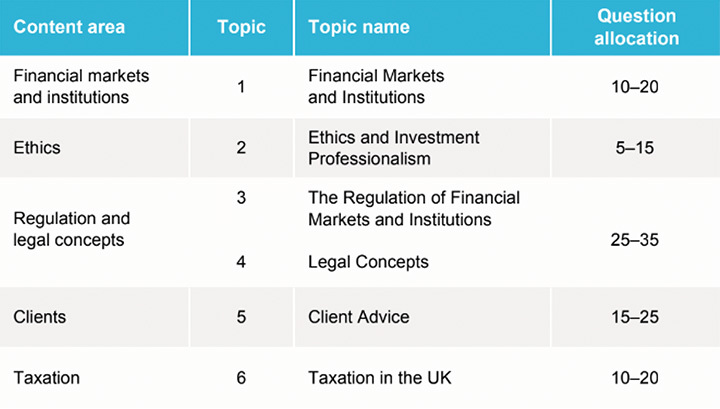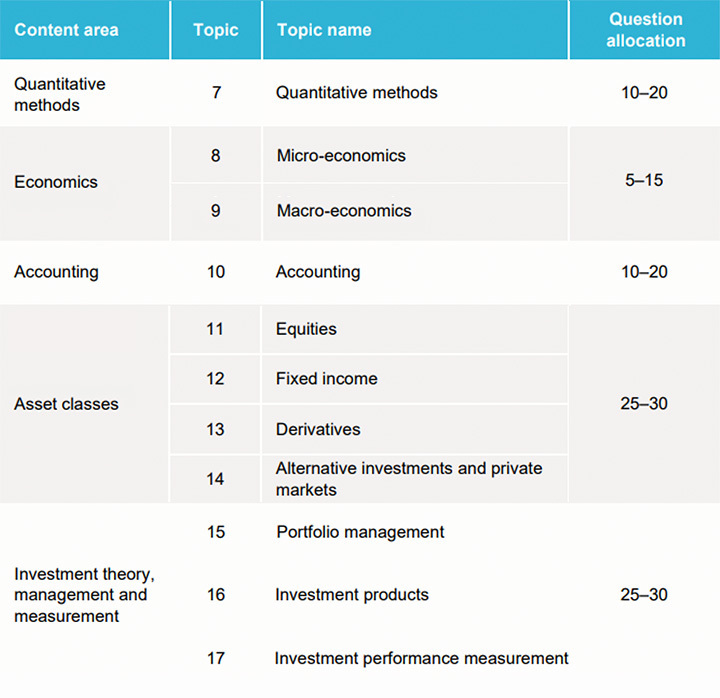If you’re studying for the Investment Management Certificate (IMC) exam, you might be wondering how best to learn and retain all the information. But don’t worry, we have some hints and tips to help you.
Really get to grips with the exam topics
The IMC Unit 1 (Investment Environment) exam has 85 questions that focus on six topics, weighted as follows:

The IMC Unit 2 (Investment Practice) exam has 105 questions. And the topics and weights are:

So it’s important to know a little bit about each concept in each topic.
If you remember even the basic information on exam day, you’ll be able to distinguish between relevant and irrelevant information, and narrow down your answer.
It’s never too early to start studying
The combined total study time for IMC Units 1 and 2 is 220 hours. So it’s not worth putting your study time off. The exams are practically impossible to pass if you don’t put in the hours. Try to avoid relying on cramming at the last minute.
You may run into questions that at first don’t seem to relate to anything you’ve studied, but if you’ve crammed your study time, you may be completely overwhelmed. You're going to be tested on topics that require a type of knowledge that can only be gained over a structured course of study, and definitely not mad, last-minute, reviews of your study materials.
Studying needs structure and preparation
Studying for an exam is always easier if you have a plan in place. Make a study and revision timetable and stick to it. But don’t try and study for too long - your brain can’t keep up the same level of concentration for hours on end.
Put in breaks where you get up from your desk, get some fresh air, a drink or some food. Turn off your brain for a bit before you jump back in.
Some people prefer to layer their study. This means studying different subjects rather than studying one topic very thoroughly and then moving on. You may find that you can absorb bite size chunks, little and often, more easily than trying to get to grips with one massive concept in one go.
Practice in the final weeks before each exam
Make sure you do plenty of practice questions so you get a feel of the exam before you sit it. Keep practicing until the questions and your exam technique become second nature.
Treat mock exam practice as if it’s the real thing. Make sure you’re in a quiet room, no books to refer to, and time yourself. This way you’ll get a feel for the time restraints and the pressure you’re going to feel on exam day. You’ll only have two to three minutes per question, so it’s important to get used to this before sitting the actual exam.
Take a deep breath and try to be calm
Once in the exam, breathe deeply and read the questions properly. Reread if you don’t first understand what it’s asking you. If you still can’t find the best answer, try to eliminate at least one and take an educated guess. It’s always best to answer than to leave it blank - even a guess gives you a 25% chance of being right.
Don’t panic if it seems overwhelming, especially if you’ve come across several tricky questions in a row. Panic will make it worse. You’ll start shutting down, and this isn’t what you need in the middle of an exam. Breathe, put your pencil down, and take a minute to regroup. When you’re ready, start again.
Final quick tips from our expert IMC tutors
- Use the same study text IMC exam setters use - you know it makes sense! The CFA UK Official Training Manual (OTM) - part of the Kaplan study materials - is written by the examining institute. It covers the entire syllabus, giving you complete syllabus coverage for your exam.
- Learn by doing - use questions to fine tune your knowledge. Be brave enough to get practice questions wrong. When you review them you will have learnt something new. It’s the best way to build up and remember exam relevant facts.
- Study in short sharp bursts, with regular breaks. Try 50 minutes on, 10 minutes off. Keep your mind fresh and active.
- Think about, and practice, exam technique. When working on Mock Exams (and in the real exam) do the questions you feel okay with first. Come back to the harder questions later. Adopting this approach will give you confidence in the early part of the exam, and plenty of time for the harder questions at the end.
- Practice makes perfect! Ask any successful IMC delegate what the key to success is and they’ll say "When you've done all the questions, do all the questions again!". Great advice.
Need IMC exam support?
If you’re still worried about your exams and interested in classroom revision, you can talk to your tutor, or contact a tutor by email: citybookings@kaplan.co.uk or by calling 020 7920 3060.
If you’re interested in doing IMC, have a look at our IMC page for more information.